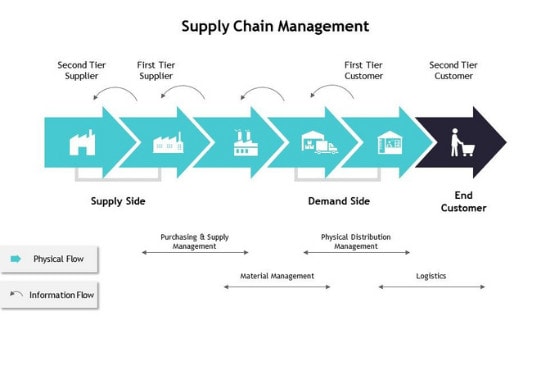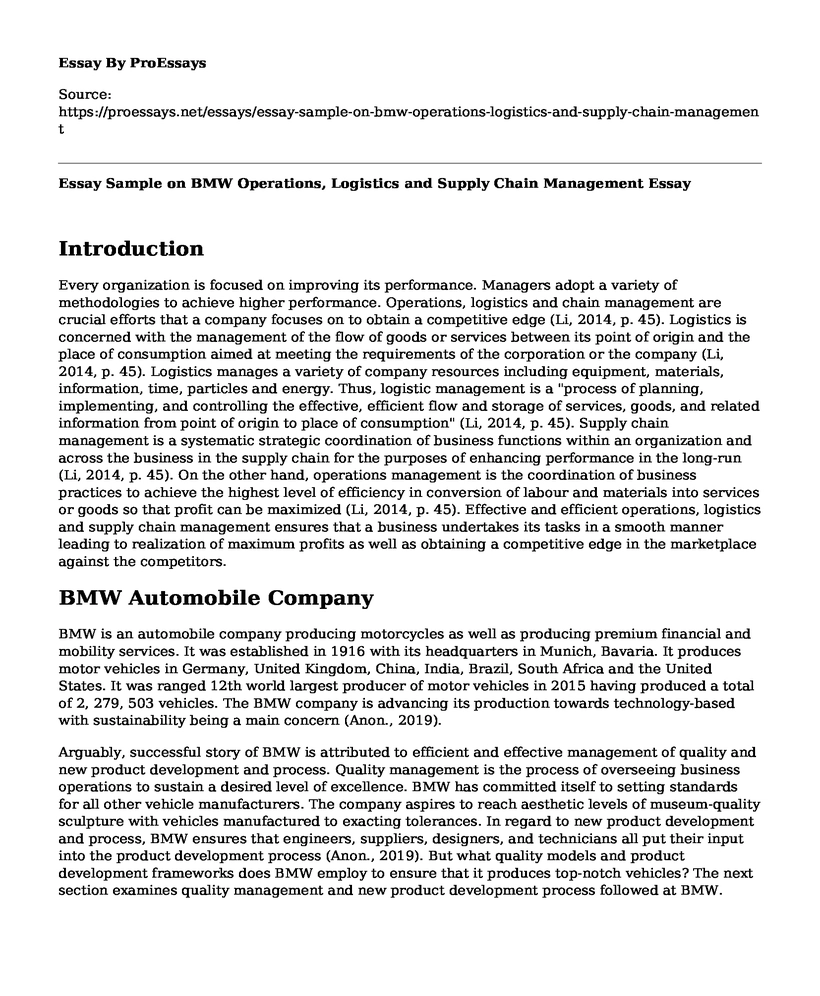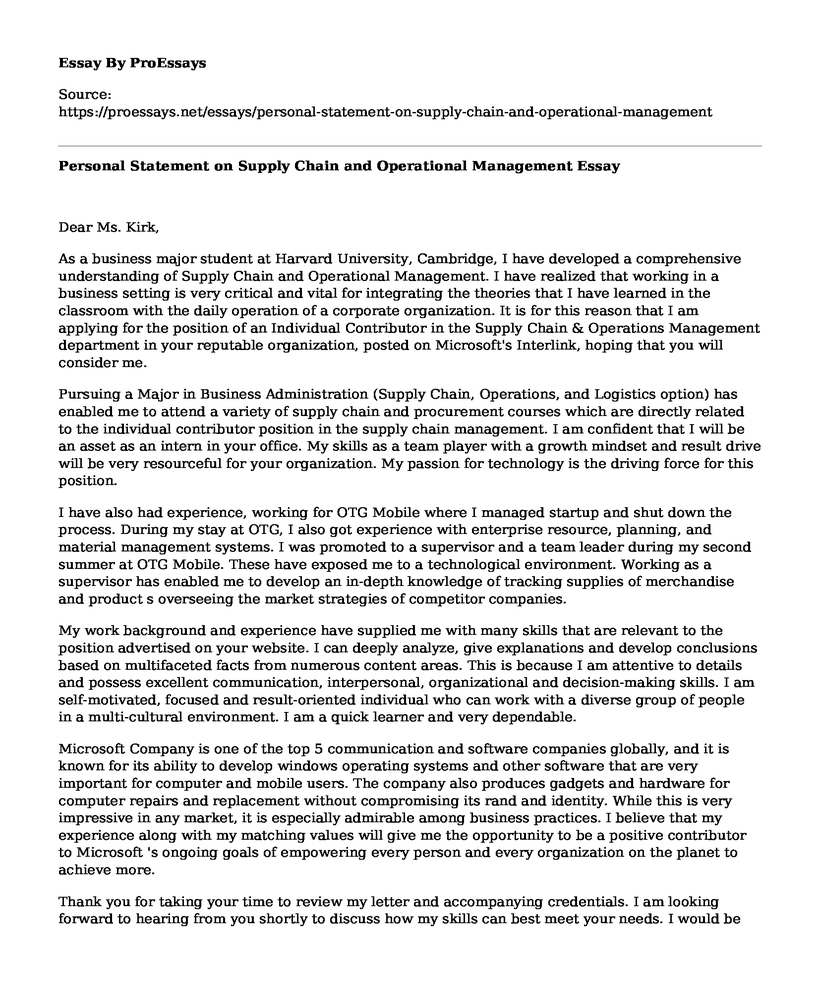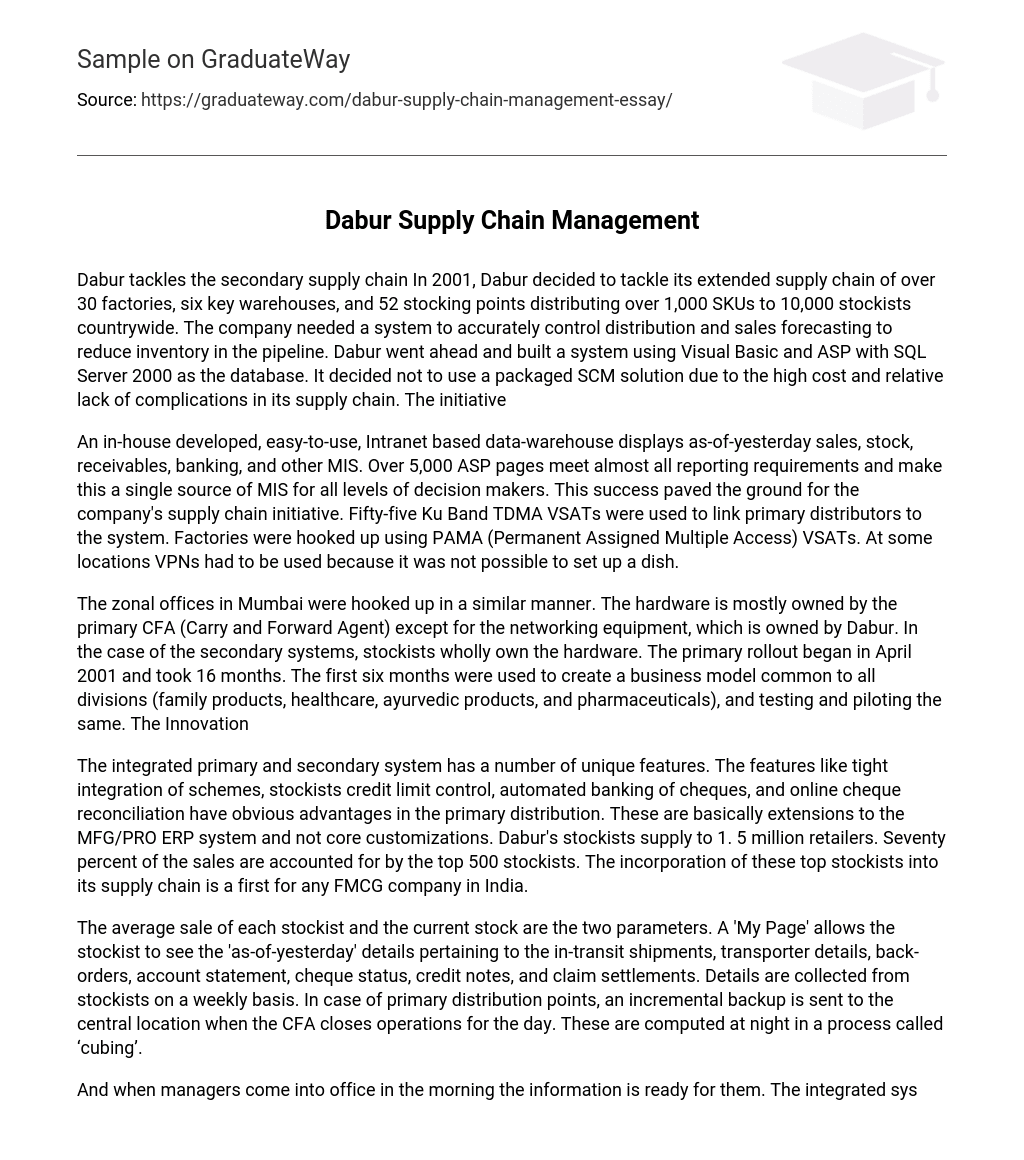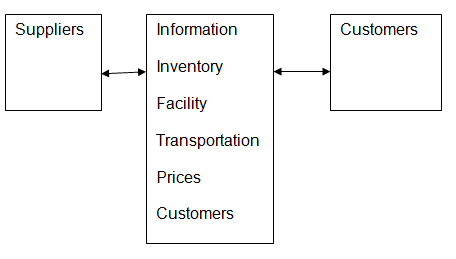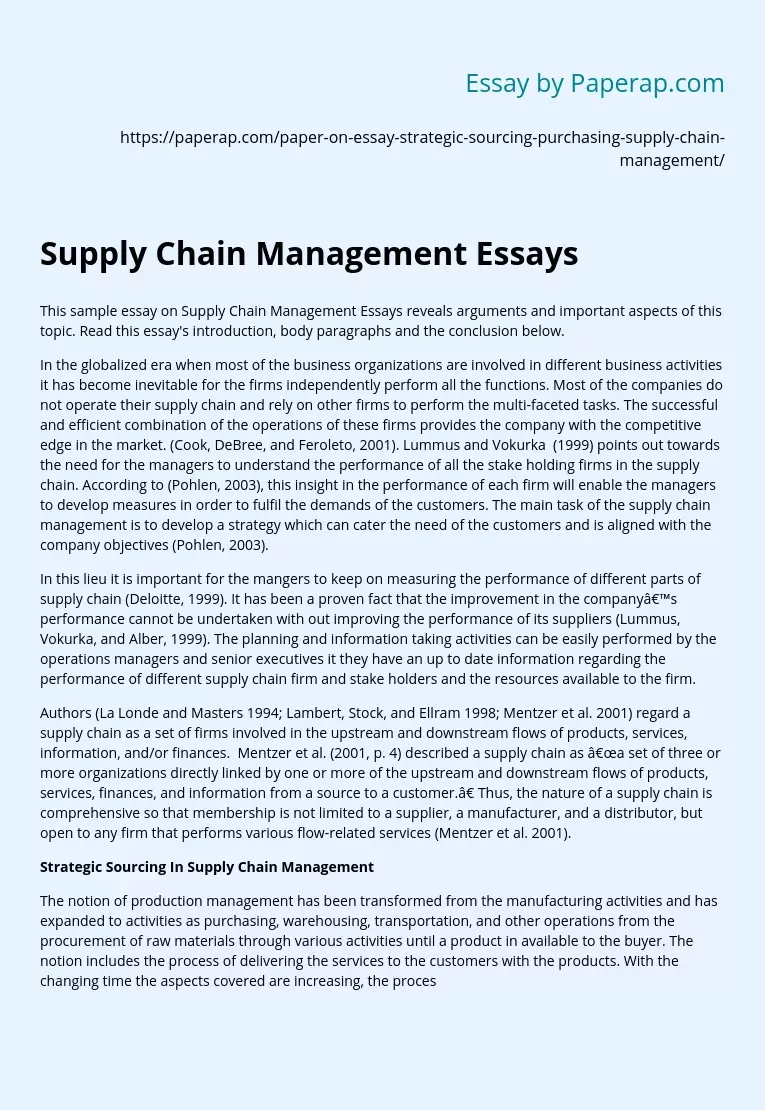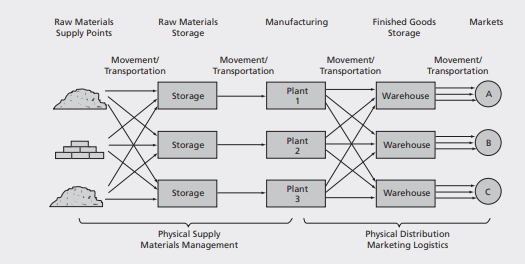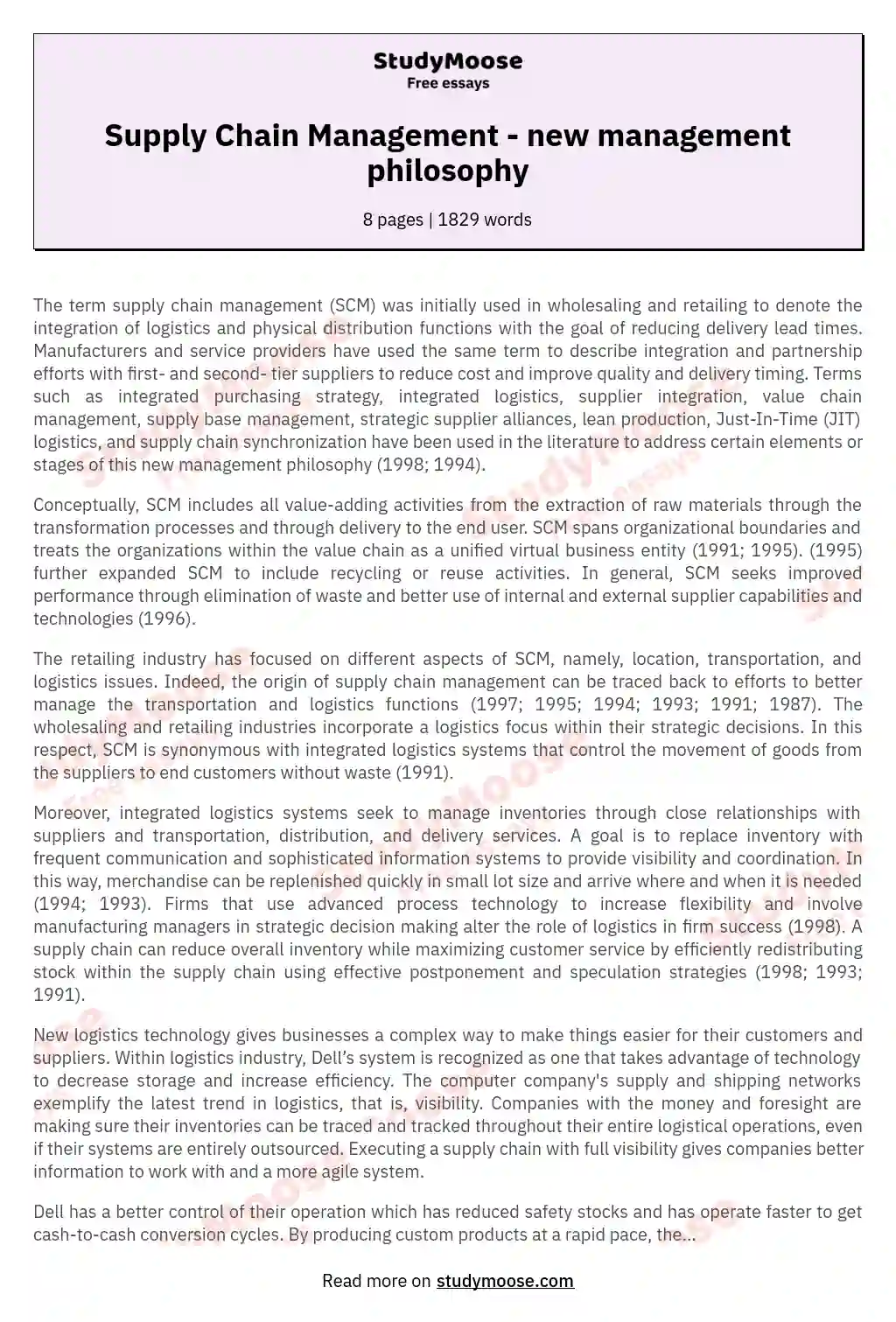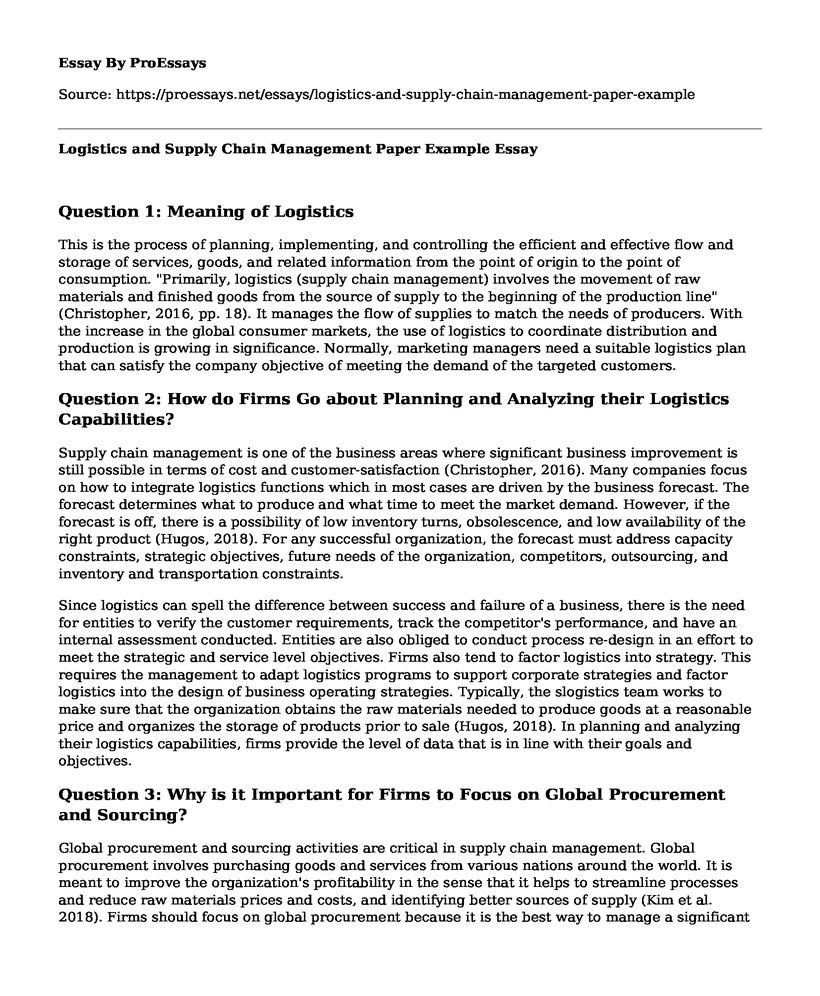Supply chain management is the process of organizing and coordinating the various activities involved in the production, distribution, and delivery of goods and services. It involves the movement of raw materials, finished products, and information from one point to another within an organization, as well as the coordination of activities across different organizations that are involved in the production and distribution of goods and services. Effective supply chain management is critical to the success of any organization, as it can have a significant impact on the efficiency, cost, and quality of the goods and services it provides.
There are several key elements that are involved in supply chain management. One of these is the procurement of raw materials and components. This involves identifying and sourcing the materials and components needed to produce the goods or services that an organization offers. This can include everything from raw materials used in manufacturing, to packaging materials, to components used in the production of finished goods.
Another important element of supply chain management is the production process itself. This involves the transformation of raw materials into finished goods, and may involve a variety of different activities such as manufacturing, assembly, and testing. It is important that this process is efficient and cost-effective, as it can have a significant impact on the overall cost and quality of the goods and services being produced.
Once the goods have been produced, they need to be distributed to customers. This involves a variety of different activities, including warehousing, transportation, and logistics. It is important that these activities are coordinated effectively, as any delays or inefficiencies can have a negative impact on customer satisfaction and the overall success of the organization.
In addition to the physical movement of goods and materials, effective supply chain management also involves the flow of information. This includes the tracking of inventory levels, the monitoring of production and distribution processes, and the communication of information between different parties involved in the supply chain. The use of technology, such as enterprise resource planning (ERP) systems and supply chain management software, can help organizations to more effectively manage the flow of information and make better decisions about their supply chain operations.
Effective supply chain management can provide a range of benefits to organizations. It can help to reduce costs, increase efficiency, and improve the quality of the goods and services being produced. It can also help organizations to be more responsive to changing customer needs and demands, and to better manage their risks and uncertainties. In today's fast-paced, globalized economy, the ability to effectively manage the supply chain is more important than ever, and organizations that are able to do so are well positioned to succeed.
Ginni Rometty is an American business executive who is currently the executive chairman of IBM. She is known for her work in the field of technology and has played a key role in shaping the direction of the company during her tenure as CEO. According to Celebrity Net Worth, Rometty has an estimated net worth of $60 million.
Rometty began her career at IBM in 1981 as a systems engineer and has worked her way up through the ranks to become one of the most respected executives in the industry. She has held a number of leadership positions within the company, including head of sales and distribution, and was named president and CEO in 2012.
During her time as CEO, Rometty has focused on transforming IBM into a more innovative and agile company, with a particular emphasis on cloud computing and artificial intelligence. Under her leadership, IBM has made significant investments in these areas and has seen its stock price rise significantly.
In addition to her work at IBM, Rometty is also known for her philanthropic efforts. She has served on the board of directors for several non-profit organizations, including the National Academy Foundation and the U.S. Fund for UNICEF.
Rometty's success and leadership in the tech industry have earned her numerous accolades and awards, including being named one of Fortune's Most Powerful Women in Business for nine consecutive years and receiving the Edison Achievement Award for her contributions to the field of technology.
Overall, Ginni Rometty's net worth of $60 million is a reflection of her hard work and dedication to her career in technology. Her leadership and vision have helped to shape the direction of IBM and have made her one of the most respected executives in the industry.
It is difficult to predict with certainty what life will be like in 2025, as it depends on a wide range of factors such as technological advancements, social and cultural changes, and global political developments. However, based on current trends and projections, it is possible to make some educated guesses about what life might be like in the near future.
One of the most significant changes that we are likely to see in the next few years is the continued rise of technology and automation. Many tasks that are currently performed by humans are likely to be taken over by robots and other forms of automation, leading to significant changes in the job market. This could potentially lead to widespread unemployment and a shift towards a gig economy, where people work on a project-by-project basis rather than holding traditional jobs.
On the other hand, technological advancements could also lead to the creation of new industries and job opportunities. For example, the growth of the renewable energy sector could lead to the creation of jobs in fields such as solar panel installation and wind turbine maintenance. The increasing importance of cybersecurity could also lead to a rise in demand for professionals with expertise in this area.
In terms of social and cultural changes, it is likely that we will see a continuation of the trend towards greater diversity and inclusion. The younger generation, in particular, is more open and accepting of people from different backgrounds and identities, and this could lead to more diverse and inclusive communities. At the same time, however, there are also likely to be challenges and conflicts as different groups struggle to find common ground and navigate the complexities of a rapidly changing world.
On a global scale, the next few years are likely to be marked by significant political and economic developments. The ongoing impact of the COVID-19 pandemic could lead to further changes in the way we live and work, and the rise of nationalism and populism in many countries could have significant consequences for global relations and the balance of power. Climate change is also likely to continue to be a major concern, with the potential for increasingly severe natural disasters and the need for countries to work together to address this global challenge.
Overall, it is difficult to predict exactly what life will be like in 2025, but it is clear that we are likely to see significant changes in the way we live, work, and interact with each other. Technology and automation will continue to transform many aspects of our lives, and social and cultural changes will also play a significant role in shaping the world of the future. Despite the many challenges and uncertainties that lie ahead, there is also the potential for great progress and positive change as we work together to build a better future for all.
